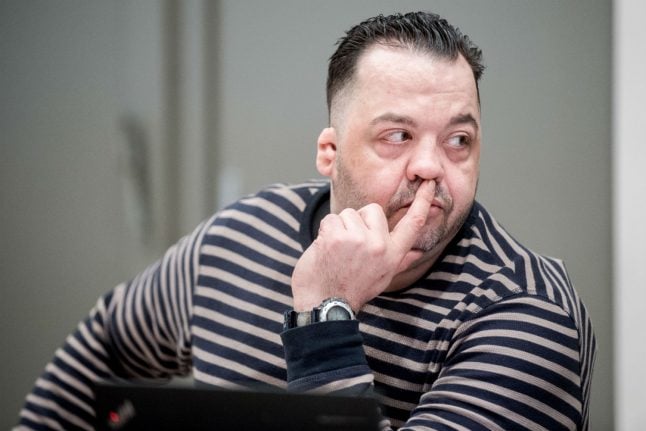On Thursday, a German court gave Niels Högel a life sentence – or 15 years with the possibility of extension in Germany – for 85 hospital patients he killed under his care. Why did he commit his crimes and why wasn't he caught earlier?
SEE ALSO: Life sentence given to Germany's serial killer nurse
The accused
Born December 30th, 1976, in the North Sea coastal town of Wilhelmshaven,
Högel became a nurse, like his father, at the age of 19.
In 1999 he took a job at the main hospital in Oldenburg and transferred to a facility in neighbouring Delmenhorst in 2003.
Former colleagues described him as diligent and likeable but began to take notice of a “troubling” number of deaths in the intensive care unit on his watch.
Between 2000 and 2005, he administered medical overdoses to his victims, intentionally, so he could bring them back to life at the last moment.
Högel told the court he hoped to dazzle his colleagues with his performance. “It was the only way to feel like I was part of the team,” he said.
He was rarely successful and in 2005 was caught in the act.
Psychiatrists who have evaluated Högel, the father of an adolescent daughter, say he has a severe narcissistic disorder.
During the trial, he said he had trouble coping with the stress of the job amid chronic understaffing and that he self-medicated with painkillers.
“I wasn't cut out for this work. I should have recognized that,” said Högel.
The victims
The known victims were aged between 34 and 96, and apparently selected at
random.
Prosecutors say their number could rise to more than 200, while a spokesman
for the families, Christian Marbach, puts the toll at closer to 300.
However, the true number may never be known because several presumed victims' bodies were cremated before they could be autopsied.
Högel surprised the court on the first day of his trial by admitting to the approximately 100 murders he is charged with, at the Delmenhorst and Oldenburg hospitals.
But he later said that he was only sure of having “manipulated” 43 patients and could not rule out responsibility for the deaths of 52 people. He denied involvement in five cases.
Högel said he had kept quiet “out of shame” and because it had taken him a long time to realize the full scope of what he had done.
“I cannot imagine that he remembers each of the people (he killed),” said Petra Klein, who runs the crime victims' support group Weisser Ring in Oldenburg.
Hospitals' culpability?
The hospital in Oldenburg encouraged Högel to resign in late 2002, even offering him a glowing professional recommendation to ensure his departure.
Högel said his superior never explicitly said why they wanted him gone but that the request to leave made him feel as though he “had been caught”.
Despite suspicion about the mounting deaths on Högel's watch, the hospital did not open an investigation.
“Without the mistakes of some people in Oldenburg… this series of murders
by Niels Högel could have been stopped,” said Marbach, whose grandfather was one of the victims in Delmenhorst.
Colleagues and superiors at the two clinics testified in the trial that they never suspected any foul play or at least could not remember doing so.
Ten of them are currently under investigation for perjury.
Damning figures
A police file based on statistics provided by the Delmenhorst hospital shows that between 2003 and 2004 the death rate was twice as high as in previous years.
During the same period, the use of medication for cardiac ailments soared.
And in most cases when a patient died, Högel was on duty.
The figures paint a damning picture but prosecutors only took action in
2008, ordering the exhumation of eight bodies under pressure from relatives of
alleged victims.



 Please whitelist us to continue reading.
Please whitelist us to continue reading.
Member comments